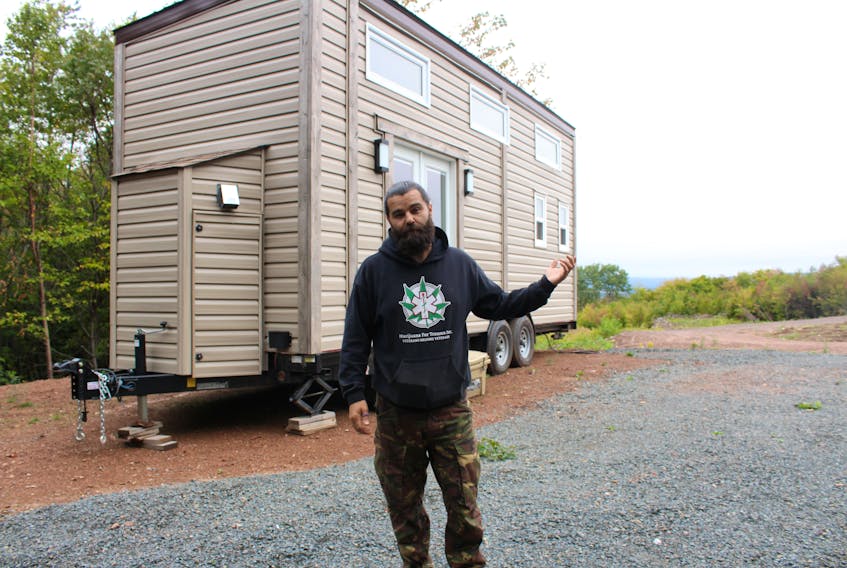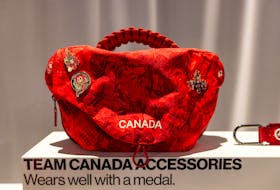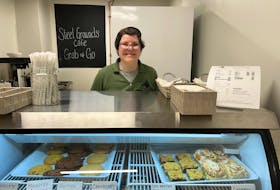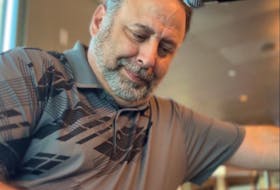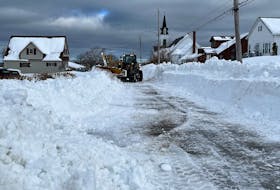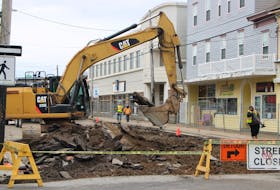MONCTON – Fabian Henry is a Nova Scotia born former Canadian Armed Forces soldier dedicated to veteran aftercare.
Jack Rennie is a Saskatchewan born advanced care paramedic and mental health advocate who is dedicated to helping first responders recover form operational injuries like post-traumatic-stress-disorder (PTSD).
Together, with an advisory board behind them (which includes former Nova Scotia Premier Darrell Dexter and former leader of the provincial Conservative party Jamie Baillie), they hope to help people across the country with their journey healing from trauma through GAFF.
GAFF (Global Alliance Foundation Fund) is a non-profit founded by Henry in 2017, dedicated to helping veterans recover from trauma-induced injuries like PTSD. Over the past two years, Henry’s vision for the project has expanded as he’s been making partnerships with people like Rennie and both are eager for the Canadian Revenue Agency to grant GAFF’s charitable status so they can get to work.
“Trauma, with a capital “T”,” said Henry, who was born in Cape Breton, from his Moncton home. “Trauma is trauma. We’re not focused on what kind of trauma or how you got it. What we’re trying to do is give you the tools to help recover from that trauma.”
Rennie agreed, who was with Henry for the phone interview, “It doesn’t matter if you’re a first responder, police, a veteran, a nurse working in a hospital, it doesn’t matter. Trauma is trauma and trauma can be isolating.”
The idea for GAFF came to Henry while waiting at the airport to pick up a colonel doing a session with veterans. An advocate for veteran aftercare because Henry himself struggled to find help managing his PTSD symptoms and getting healthy after his discharge in 2012, he envisioned GAFF as a one-stop shop for veterans and soldiers to find resources, peer support and treatments.
GAFF is a term used by Canadian soldiers and stands for “give a fuck factor” — something you need to have a high level of before engaging in dangerous missions. Funding for GAFF the social enterprise would initially come from the sale of Marijuana for Trauma, a company Henry co-founded to increase access to medical cannabis for veterans in 2013.
Henry and his partner sold Marijuana for Trauma to Company House for $3.6 million and 40 million shares, which were held in an escrow account where they’ve grown to more than $18 million and were recently released.
“I figured my GAFF is pretty high to donate 40 million shares of Canada House to make this happen,” Henry said, laughing.
With some of the capital Henry had not held in the escrow account, he began building the structure for GAFF. He also began purchasing some properties in Cape Breton to be used for retreats, veteran family weekends and patient-centre care treatments. These include 300 acres in Chimney Corner which includes the beach, 130 acres in Piper Glen which leads down to part of Egypt Falls and 1.5 acres in Inverness overlooking the fifth hole of Cabot Links Golf Course.
And although GAFF hasn’t been official launched yet, Henry’s held some small retreats and Remembrance Day ceremonies at his Pipers Glen location. He started Veterans for Healing, a resource group that helps veterans transition from life as a soldier to life as a civilian, helping with things like how to find resources for mental health, where to find financial assistance when needed, and peer support.
Like Henry, Rennie’s passionate about helping first responders suffering from occupational injuries like PTSD and knows of many co-workers who have died by suicide.
“Forty to 60 first responders die by suicide every year… I think five people I’ve known have taken their own lives in Saskatchewan (over the past few years),” he said.
“It’s tough having a foot in both worlds, being in a stable place where your PTSD is in remission, but then there are too many triggers around you every day in your job.”
Rennie remembers a baby who died in his care, within the first three months on the job when he was 21.
“That twisted me up for a while,” admitted Rennie who is now 31.
A trauma-care expert, Rennie works with communities, like the one affected by the Humboldt Broncos hockey team bus crash, helping them along their trauma journey. He does the same for first responders as well, who he said are often discriminated against when they’re diagnosed with an injury like PTSD.
“I had a co-worker… He lost his job. He lost his house. He has to file a human rights complaint,” he said.
“This hinders the healing process. You can’t heal when the traumas are fresh. Sometimes you need more than just a week away from work... Then when your job is taken away, you lose your sense of identity. You’re living in a sort of bubble then because (the traumas) are all consuming.”
Some of the therapies Rennie uses to help people recovering from trauma are equine (horse), nature retreats and sweat lodges. Him and his wife own acres of property where they plan to have a permanent retreat centre, one which could be a host to future GAFF retreats.
“GAFF will still be the central hub for information supports and possible financing,” explained Henry. “These partnerships we are making across the country, with help us and help other groups that are like minded, when it comes to healing and wellness.”
Along with Rennie, Henry said they’ve created other partnerships with groups in Alberta and British Columbia, as well areas outside of Cape Breton like Real Canadian Recreation (RCR) barn in Pictou, owned by Tyson Bowden.
Hopes are to have GAFF’s charitable status soon enough to open it up publicly by spring 2020. Both Henry and Rennie have big plans once it is, including family events — because when someone you love is injured by trauma, you can suffer too.
“It’s about helping start the healing process,” said Henry.

